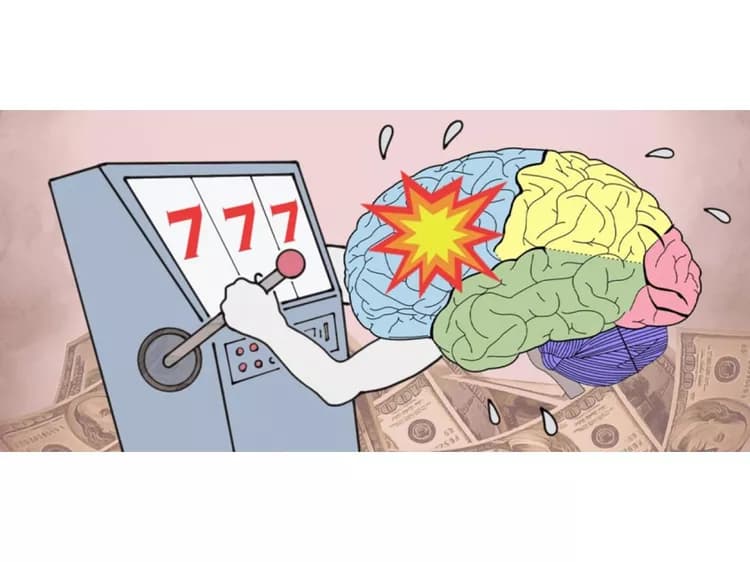
Brains Of Gambling Addicts: High Stakes, High Risk, And A Bad Bet
You've been losing all night, and now another bad hand. So why raise?
Gambling addiction is a mental disorder characterized by excessive risk-taking despite negative results. Scientific studies using functional MRI -- fMRI, a method of looking at active areas of the brain -- have previously shown that addicts have altered activity in brain regions related to risk and reward, making them prone to prefer risky choices.
New fMRI research conducted at Kyoto University has now found another explanation for the unhealthy bent: addicts have a poor ability to assess and adapt to high risk situations. The study appeared recently in Translational Psychiatry.
"We noticed that gambling addicts also have higher levels of mood and anxiety disorders," says lead author Hidehiko Takahashi. "Hence pleasure may not be the main goal, but rather an inability to properly recognize risk and adapt accordingly."
We all make action decisions by evaluating the likelihood of success based on the level of tolerable risk. We then make adjustments based on prevailing circumstances.
"For example, if you are losing in the first half of a soccer match, you will likely prefer a strong defense while pushing your attackers forward," continues Takahashi, "However, if you are losing at the end of the second half, you may choose to forgo defense in favor of an all-out attack, because you would lose otherwise."
Addicts, on the other hand, are inclined toward unnecessarily risky action, demonstrating a defect in risk assessment and adaptation.
Flexibility in risk-taking between addicts and non-addicts was determined through a series of gambling tasks, requiring participants to earn a certain amount of credits. Addicts were found to go with a risky strategy even if that choice was sub-optimal.
"We observed diminished activity in the dorsolateral prefrontal cortex, a region of the brain involved in cognitive flexibility," concludes Takahashi. "This indicates that these subjects lack an ability to adapt their behavior to the risk level of the situation."
The team hopes that their findings will contribute to a better understanding of the nature of gambling addiction, and eventually to the development of new methods of treatment.
Materials provided by Kyoto University. Note: Content may be edited for style and length.
Disclaimer: DoveMed is not responsible for the accuracy of the adapted version of news releases posted to DoveMed by contributing universities and institutions.
Primary Resource:
Fujimoto, A., Tsurumi, K., Kawada, R., Murao, T., Takeuchi, H., Murai, T., & Takahashi, H. (2017). Deficit of state-dependent risk attitude modulation in gambling disorder. Translational Psychiatry, 7(4), e1085. DOI: 10.1038/tp.2017.55
Related Articles
Test Your Knowledge
Asked by users
Related Centers
Related Specialties
Related Physicians
Related Procedures
Related Resources
Join DoveHubs
and connect with fellow professionals

0 Comments
Please log in to post a comment.